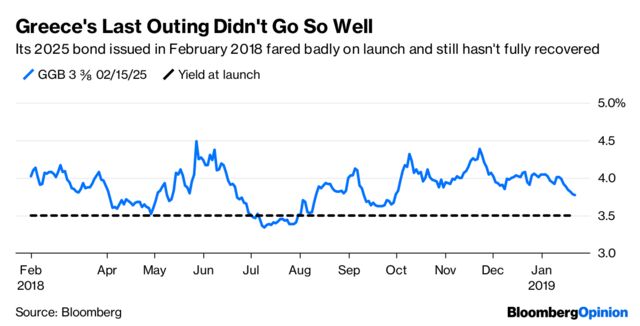Commuters inching through rush-hour traffic in the Holland Tunnel between Lower Manhattan and New Jersey don’t know it, but a technology likely to be the future of communication is being tested right outside their car windows. Running through the tunnel is a fiber-optic cable that harnesses the power of quantum mechanics to protect critical banking data from potential spies.
The cable’s trick is a technology called quantum key distribution, or QKD. Any half-decent intelligence agency can physically tap normal fiber optics and intercept whatever messages the networks are carrying: They bend the cable with a small clamp, then use a specialized piece of hardware to split the beam of light that carries digital ones and zeros through the line. The people communicating have no way of knowing someone is eavesdropping, because they’re still getting their messages without any perceptible delay.
QKD solves this problem by taking advantage of the quantum physics notion that light—normally thought of as a wave—can also behave like a particle. At each end of the fiber-optic line, QKD systems, which from the outside look like the generic black-box servers you might find in any data center, use lasers to fire data in weak pulses of light, each just a little bigger than a single photon. If any of the pulses’ paths are interrupted and they don’t arrive at the endpoint at the expected nanosecond, the sender and receiver know their communication has been compromised.
“Financial firms see this as a differentiator,” says John Prisco, chief executive officer of Quantum Xchange, the company that’s been operating the cable in the Holland Tunnel since the fall. Prisco says several large banks and asset management firms are testing his gear, but he declined to name them, citing nondisclosure agreements. The companies are considering using QKD to guard their most sensitive secrets, he says, including trading algorithms and customer settlement accounts. Quantum Xchange, based in Bethesda, Md., says it hopes to stretch its cables from Boston to Washington, D.C., and is also promoting them to U.S. government agencies.
Estimates of the annual QKD market range from $50 million to $500 million, but market researcher Global Industry Analysts Inc. says demand for QKD and related technologies may reach $2 billion by 2024. The Chinese government has created a 1,240-mile QKD-protected link between Beijing and Shanghai. It’s also demonstrated the ability to use QKD to transmit and receive messages from a satellite. And a half-dozen QKD startups are pitching other kinds of clients. Qubitekk Inc., a startup in Southern California, has a U.S. Department of Energy contract for a pilot project to secure the communications that help operate power stations. Telecommunications giants including the U.K.’s BT Group Plc and Japan’s NTT Corp. say they’re considering whether to build the protection into their network infrastructure.
Why bother when most network traffic is already encrypted? Encryption is worthless if an attacker manages to get the digital keys used to encode and decode messages. Each key is usually extra-encrypted, but documents disclosed by former National Security Agency contractor Edward Snowden in 2013 showed that the U.S. government, which hoovers up most of the world’s internet traffic, can also break those tougher codes. Exactly how the NSA accomplishes this isn’t widely known. (One suspicion is that while keys are supposed to be based on multiplying two random large prime numbers together, many systems use a relatively small subset of primes, making it much easier for a computer to guess the key.)
Quantum computers are another potential threat to conventional encryption. Like QKD systems, these machines use quantum physics principles to process information and may one day achieve processing power far beyond that of conventional computers. When that happens—in the next 3 to 15 years, depending on whose estimate is right—quantum computers will give almost any user the code-breaking powers of today’s NSA. In 2016 the NSA warned companies that do business with the U.S. government that their next generation of encryption systems would have to be resistant to attacks by quantum computers.
QKD has limits. It can protect data only in transit, not when it’s at rest, stored in data centers or on hard drives. And because fiber-optic cabling itself absorbs some light, a single photon can travel only so far. Scientists have pushed the boundary ever outward, as far as 260 miles in lab experiments. Yet for high-speed transmissions under real-world conditions, the record is just 60 miles. Farther transmissions require a series of “trusted nodes,” relays that are themselves vulnerable to hackers or physical tapping. China uses armed guards to secure the nodes in its 1,240-mile QKD network, says Anthony Lawrence, a former NSA network security expert and briefing officer who now runs cybersecurity startup Vor Technology LLC.
One sure way to avoid these security and distance issues is simply to cut the cord. British startup Kets Quantum Security Ltd. is working with Airbus SE on using QKD to secure communications between a drone and its operator on the ground. And satellite relays will eventually be able to transmit quantum-encrypted signals almost anywhere on Earth, predicts Lawrence, who’s working to commercialize QKD. For the moment, though, the signals are stuck in the Holland Tunnel.
THE BOTTOM LINE While mass adoption of QKD technology remains a long way off, developers are racing to commercialize it before superpowerful quantum computers become more reliable. ● One estimate puts demand for QKD and related technologies by 2024 as high as $2b









